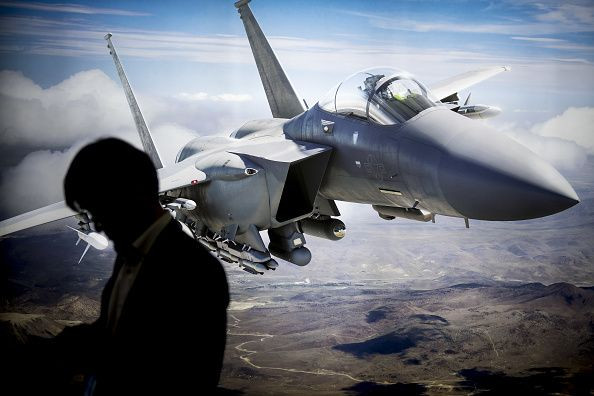Airbus Teams With Lockheed to Take On Boeing Tankers
The two sides are gearing up for a rematch of one of the most controversial Pentagon procurement battles in recent memory.

Lockheed Martin (NYSE:LMT) and Airbus (NASDAQOTH:EADSY) are teaming up to refight one of the most controversial Pentagon procurement battles in recent memory, hoping to unseat Boeing (NYSE:BA) as the dominant provider of U.S. military aerial-refueling tankers.
This article originally appeared in the Motely Fool
The two aerospace giants have signed an agreement to jointly pitch Airbus' A330 Multi Role Tanker Transport (MRTT) to the Pentagon. Airbus, then working with Northrop Grumman, in 2008 won a $35 billion deal to build A330 tankers for the Air Force, but that deal was eventually overturned after political pressure, and Boeing in 2011 won a $49 billion contract to supply 179 tankers based on the design for its 767 commercial jet.
In the years since, Boeing has struggled to deliver those KC-46 refuelers on time and on budget, and Pentagon demand for refueling has increased. Lockheed Martin and Airbus see an opportunity and are combining forces to try to break through.
A growing market
Lockheed Martin and Airbus do not mention Boeing or the KC-46 in a press release announcing the collaboration, but they do say they hope to "address any identified capacity shortfall." Boeing missed the initial goal to begin KC-46 deliveries by August 2017 and has taken nearly $3 billion in charges related to the program, which led to Air Force Secretary Heather Wilson issuing a rare public rebuke of the company's defense business earlier this year.
"The U.S. Air Force deserves the best aerial-refueling technology and performance available under the sun and this great industry team, Lockheed Martin and Airbus, will offer exactly that," Airbus CEO Tom Enders said in a statement.
The initial Air Force order was designed to replace the bulk of its aging fleet of KC-135 tankers, and the Boeing KC-46, despite its issues, will almost certainly not be scrapped. But even as that order proceeds as planned, it would only represent about half of the tankers the Pentagon wants to buy in the decade to come, and the Air Force has signaled a need for additional refueling aircraft. Wilson during a Sept. 17 presentation made the case for boosting refueling squadronsfrom 40 to 54, potentially adding upwards of 150 additional aircraft.
The A330 tanker, despite losing in the United States, has secured 60 orders from governments including Australia, the United Kingdom, South Korea, and Saudi Arabia, and the plane has already proven itself in the field. Airbus tankers flown by U.S. allies have performed refueling missions involving American coalition aircraft fighting militants in Iraq and Syria.
Airbus and Lockheed said that the A330 is at the heart of their partnership, and mentioned the potential for a fee-for-service structure to help meet near-term air-refueling needs. They also intend to collaborate on conceptualizing the tanker of the future, perhaps combining Lockheed's experience with stealth and fighter technology with Airbus' tanker expertise.
Advantage: Lockheed
Lockheed Martin is already one of the best buys in the defense sector, and this new partnership only further tips the scales in the company's favor. The charges Boeing has taken on the KC-46 would be easier to swallow if the company is eventually able to sell upwards of 400 of them, with the later deliveries on any large program usually far more profitable than the initial models.
Given Boeing's troubles with the KC-46, and the Pentagon's frustrations with the company due to those troubles, it would make sense for the Air Force to try to allocate at least some of its future business to a credible competitor. The A330, with its resume of work in the Middle East, more than fits that bill. And if the U.S. becomes an A330 tanker operator, it would only help Airbus in securing future orders from the likes of Spain, Sweden, the Czech Republic, and India.
Boeing has tried for years to build a business selling the military crossover versions of its hugely successful commercial designs, but with a mixed track record. The KC-46 experience shows that even taking a frame with a long flight history is no guarantee of a smooth transition. Elsewhere, the company's hopes of using its 737 as the centerpiece of a modernized fleet of U.S. airborne command and surveillance aircraft have hit significant obstacles.
Lockheed Martin doesn't appear likely to be the primary beneficiary of any Pentagon Airbus orders, but the company's strengths in systems integration and in maintenance, repair, and overhaul services should create opportunities for a steady stream of ongoing revenue in the event the A330 joins the fleet.
There's very little downside for Lockheed Martin in partnering with Airbus here, and no good news for Boeing in the announcement. Boeing's tanker headache isn't over yet.





















